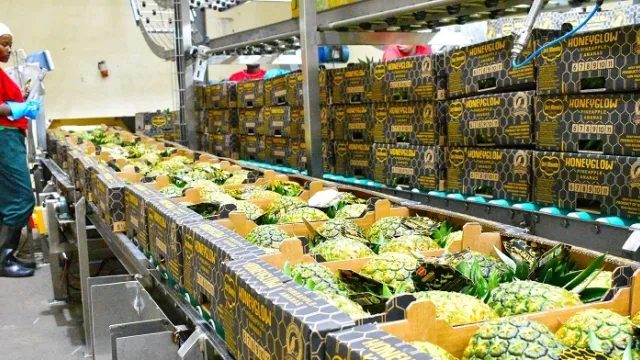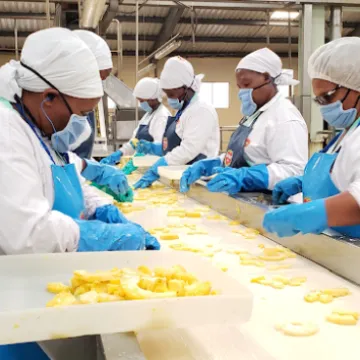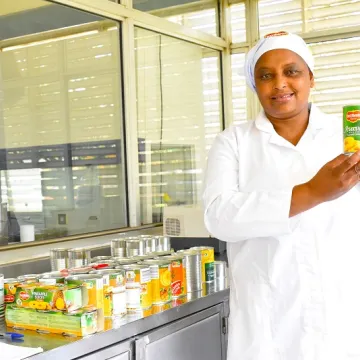How health-conscious consumers are driving change in the beverage business

At its expansive pineapple farms, Del Monte Kenya strives to provide healthier options for consumers both locally and in export markets across Africa, Europe, and the Middle East. By minimally processing its fruits, Del Monte caters to the expectations of health-conscious consumers while preserving the natural taste of its produce. (Photo/Del Monte Kenya)
Across the markets, a new wave of health-conscious consumers is reshaping how players in the global beverage industry operate. For millions of consumers, flashy TV ads, eye-catching roadside banners, and attention-grabbing radio ads no longer do the trick. Buyers are becoming more informed and are, therefore, demanding to know in detail how their food or beverages are made.
This shift is underscored by the rising number of consumers globally who are seeking food or beverage products that have fewer additives and carry natural ingredients.
The age-old mantra ‘the customer is King’ is taking centre stage in the food and beverages market. Buyers are the force behind the demand for products produced from natural ingredients by manufacturers who are equally open to transparency and sustainability in their entire value chain.
Behind this shift is the wave of consumers, who are embracing healthier lifestyles. This is being manifested by the consumption of low-calorie foods, and beverages rich in nutrients.
Clean labels influencing buyer decisions
A 2024 report by food and beverage industry market researcher Innova Market Insights shows that an estimated 60 percent of consumers in the world say that "clean labels significantly influence their buying decisions. Claims such as no additives or preservatives, only natural ingredients, and without artificial ingredients define clean labels for consumers. They are highly conscious of reducing the use of artificial ingredients."
This recalibration in consumer values is further informed by alarming statistics from the World Health Organization (WHO), which reported about 43 percent or over one billion adults worldwide were overweight in 2022.
Here in Kenya, companies are finding themselves required to adjust their trade to meet evolving demand from health-conscious customers. It is a demand that comes at a time when market studies show that the Sub-Saharan Africa region is experiencing a steady uptake of natural juices.
The uptake of natural juices is poised to expand at a compound annual growth rate (CAGR) of 6.8 percent between 2022 and 2026. For industrialists, this trend is a pointer that consumers are placing more preference on wholesome beverages as opposed to sugar-laced sodas.
Trailblazers in healthy beverage production
For players in the sector, pineapple producer and exporter Del Monte Kenya is a pioneer in how companies in the food and beverage industry can adapt to meet the changing dietary needs of consumers.
With pineapple farms stretching across Kiambu, and Murang’a counties, Del Monte strives to offer a healthier choice for consumers in Kenya and in key export market destinations in Africa, Europe, and the Middle East. With minimal processing of pineapples, Del Monte helps meet its consumers’ health expectations of its products while maintaining the natural taste of its fruits.
Additionally, in a market where consumers place premium value on trust, the Thika-based multinational is evolving to meet changing demands. The firm implements stringent sourcing practices in its value chain while observing ethical farming practices.
What’s more, from planting to harvesting and processing of pineapples and other fruits, the company’s operations are a masterclass in transparency.
Embracing sustainable practices
Apart from the spirited push for health and transparent business practices, a need for sustainable initiatives is also defining the future of industries. Across the globe, investors and consumers alike are drifting closer to manufacturers that emphasize green business practices.
Del Monte remains a pioneer in environmental stewardship, with its programs designed to optimize the firm’s impact while driving up yields. The company has deployed measures to enhance water conservation, and launched an organic fertilizer plant that turns pineapple waste into farm inputs. These strategies are meant to ensure that Del Monte’s farming and production systems are eco-friendly.
The firm, which has set a goal of planting 2.5 million trees by 2025, has been a trailblazer in environmental stewardship in the country. The firm's operations have been continuously optimised to foster responsible water usage, conserve critical ecosystems, and minimise waste. Collectively, these initiatives position the company as a sustainable farming champion.
Overall, these shifts being experienced in Kenya and Sub-Saharan Africa are part of a wider industrial revolution around the world. In Europe and North America, consumers are demanding plant-based and organically-produced foods from their industries.
"Europe dominated the organic foods market with a market share of 44.17 percent in 2023. Moreover, the organic foods market size in the US is projected to grow significantly, reaching an estimated value of US$185.47 billion by 2032, driven by high health-consciousness among the population," a Fortune Business Insights report states in part.
In the Asia market, a new report dated October 2024 shows that consumers are seeking beverage products that are enriched with health-boosting additives such as probiotics and antioxidants. "Naturally beneficial ingredients like botanicals, herbs, spices, and herbal/fruit extracts have gained a strong presence in the market, reflecting consumer demand for health-enhancing options," Innova’s Now & Next in Functional Beverages in South & Southeast Asia report states in part.
This unfolding trend is a pointer to the international appeal of health-conscious demand in the food and beverages industry. Brands that align accordingly are poised to secure success in the long term while those that go slow risk suffering massive losses.
For Del Monte, the company’s sustainable operations are a great example for industries in Africa and globally. By focusing on organic farm inputs, championing transparency and embracing sustainable practices in its value chain, the company is cementing its position as a pioneer in meeting the changing tastes of today’s health-conscious consumers.
Biofertilizer plant
“As the largest single exporter of Kenyan products, we are proud to contribute to the advancement of sustainable practices through initiatives like the biofertilizer plant,” said Wayne Cook, Del Monte Kenya’s Acting Deputy Managing Director at the launch of the company’s biofertilizer plant in May 2024.
The factory is part of the company’s broad strategy to meet the rising demand from consumers seeking nutritious, and sustainably grown agricultural products. “The investment not only reflects our commitment to our people and communities but also positions Kenya as a leader in sustainable agriculture, fostering a greener and more prosperous future for all,” Cook added.
Moving forward, the role of the rising number of health-conscious buyers in the beverage industry can only turn stronger. Their evolving preferences and demands on the value chain are set to reshape markets.
Globally, evolving tastes and preferences look set to spell the end of unsustainable food and beverage production systems. While this shift promises a chance for companies to enhance innovation, consumers stand to benefit more with access to products that compete to meet their esteemed values. It is time that the world raises its glass to a healthier and sustainable tomorrow.





